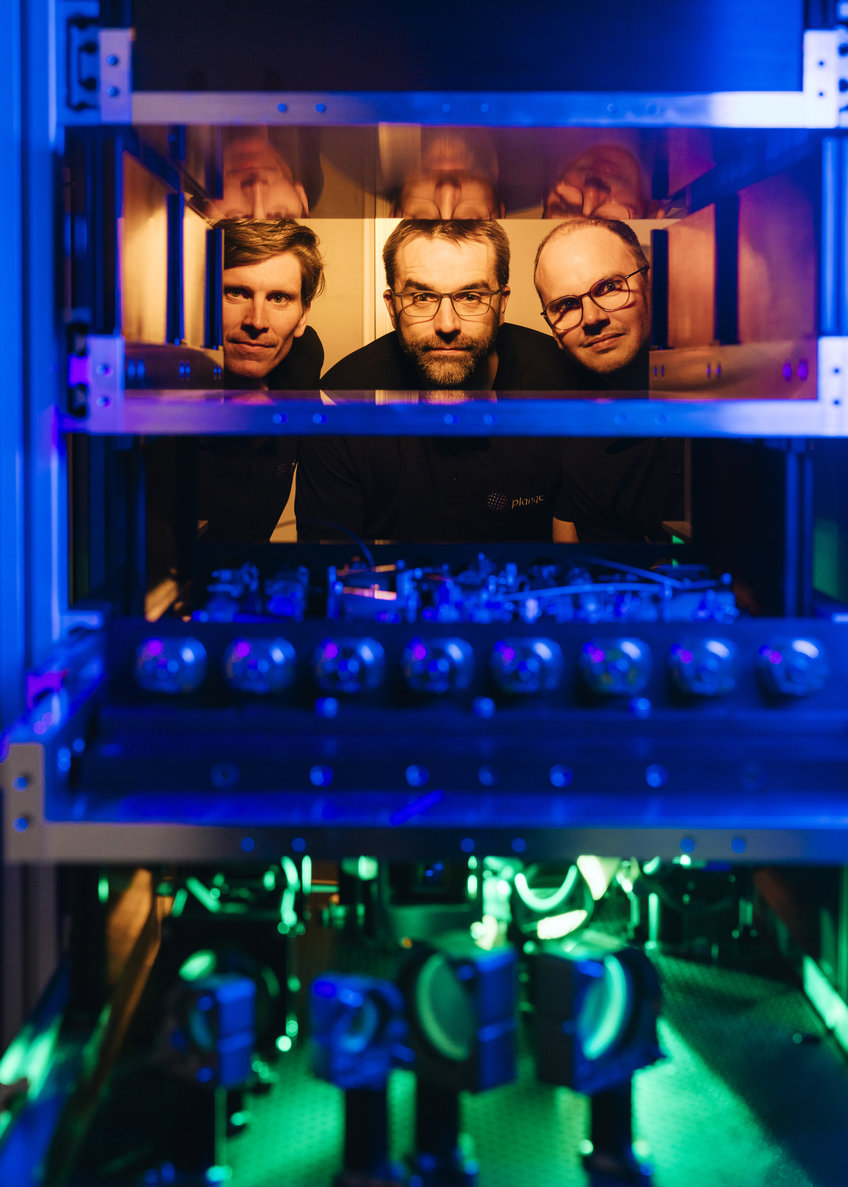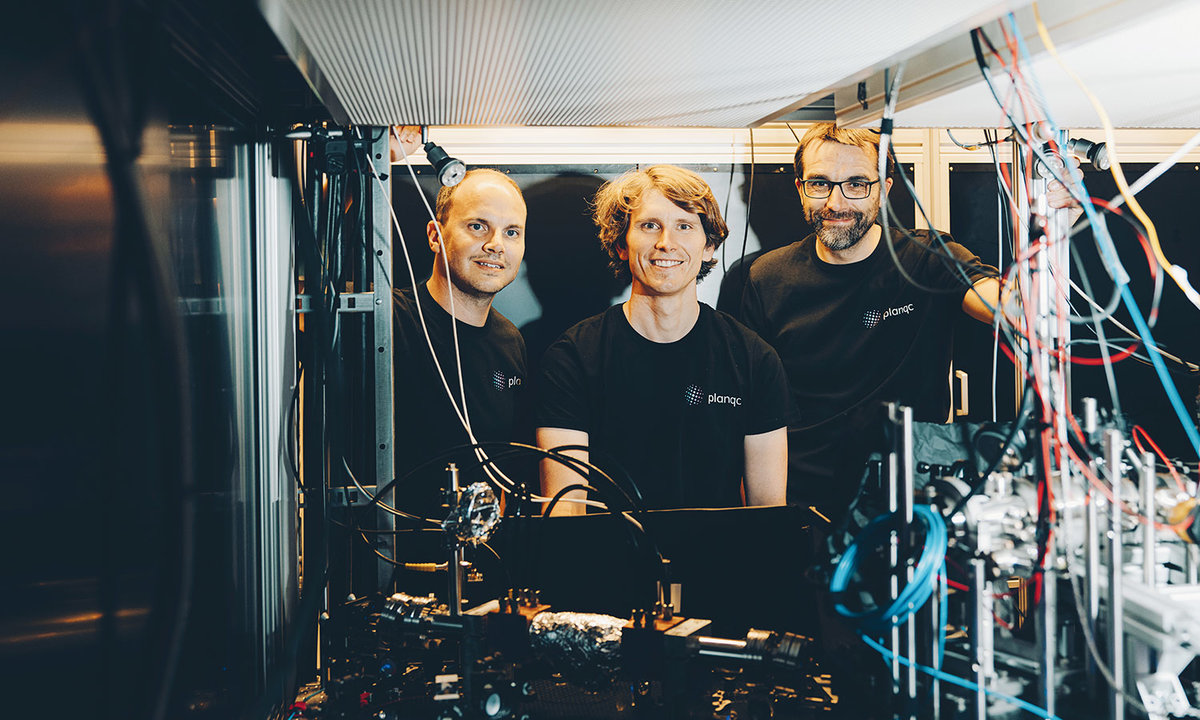The spin-off from the Max Planck Institute for Quantum Optics wins in the StartUp category with its approach to a powerful and reliable quantum computer.


The company planqc was founded in 2022 by quantum physicists Johannes Zeiher, Sebastian Blatt, and Alexander Glätzle (from left) as the first spin-off of the Max Planck Institute for Quantum Optics as part of Munich Quantum Valley.
The company planqc was founded in 2022 by quantum physicists Johannes Zeiher, Sebastian Blatt, and Alexander Glätzle (from left) as the first spin-off of the Max Planck Institute for Quantum Optics as part of Munich Quantum Valley.
© Fritz Beck
In a nutshell:The Garching-based start-up planqc, a spin-off from the Max Planck Institute for Quantum Optics, wins the German Entrepreneur Award in the StartUp category.planqc develops quantum computers that use neutral atoms as quantum bits – a particularly energy-efficient concept.The German Entrepreneur Award is presented by ZDF, Porsche, Sparkasse, and the Frankfurter Allgemeine Zeitung.
Quantum computers are expected to accelerate the development of new materials and drugs, but could also facilitate the calculation of air or water flows around turbine blades or climate simulations. planqc is pursuing its own technical concept in the development of a quantum computer, as it relies on neutral atoms as elementary computing cores. In contrast to the extremely cooled developments of large tech companies, the start-up’s computer is designed to operate at room temperature and thus be significantly more energy-efficient. For this, the company has now been awarded the German Founders Award in the StartUp category.
“The award is a tremendous endorsement for us. It shows that our technology is convincing not only scientifically, but also entrepreneurially,” says Alexander Glätzle, CEO and co-founder of planqc, about the victory. “We want to bring quantum computing into application with strong partners from industry and science and help Germany and Europe achieve a leading position in this future industry. That is exactly what this award recognizes.“
For Sebastian Blatt, CTO and co-founder of planqc, ”this success is a credit to the entire team. We want to prove that it is possible to turn cutting-edge research into successful companies in Germany. The Entrepreneur’s Award gives us the momentum to roll out our technology internationally and thus open up completely new opportunities for industry and society.”
A prime example of technology transfer
At their company headquarters, a former hardware store in Garching, the team led by founders Glätzle, Blatt, and Johannes Zeiher is doing pioneering work: They are developing quantum computers that work with individual atoms as qubits. The atoms are captured in optical lattices made of crossed laser beams, which makes it relatively easy to combine many qubits into a quantum processor. Together with the German Aerospace Center and the Leibniz Supercomputing Centre, planqc plans to construct and miniaturize the first freely programmable quantum computers by 2027. planqc is a spin-off of the Max Planck Institute for Quantum Optics and is one of the first spin-offs of Munich Quantum Valley.
“Investments in deep tech such as quantum computing are crucial to securing Europe’s competitiveness in the field of future technologies. What makes me particularly happy is that Munich Quantum Valley is only four years old – and already the first start-up, planqc, has been nominated for the Entrepreneur Award. This shows that our concept in Munich is working: excellent partners are joining forces, forming a critical mass and pulling together,” explains Max Planck President Patrick Cramer.
The German Entrepreneur Award is one of the most prestigious business awards in Germany. It was established by ZDF, Porsche, Sparkasse, and FAZ and is supported by the Federal Ministry for Economic Affairs and Energy. The award ceremony took place on September 9, 2025, at the ZDF capital studio in Berlin.

